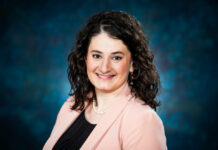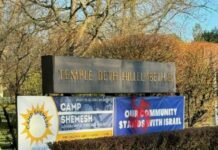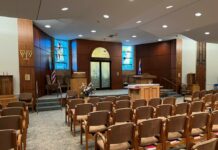Area synagogues Temple Beth Hillel-Beth El in Wynnewood and Reform Congregation Keneseth Israel in Elkins Park hired new rabbis in the past month.
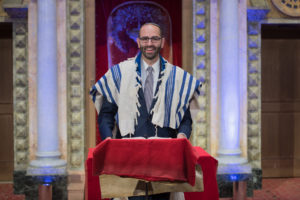
Beth Hillel-Beth El, a Conservative institution, hired Rabbi Ethan Witkovsky to replace the retiring Neil Cooper, who will step down this summer. Congregation leaders announced the decision in a Feb. 4 email to the community.
“The survey responses, feedback from congregants, staff and clergy, and our Rabbinic Search Committee was overwhelmingly in favor of Rabbi Witkovsky as the right fit for our community,” they wrote.
Keneseth Israel tapped Rabbi Benjamin David to succeed Lance Sussman, who, like Cooper, will retire this summer. KI’s Board of Trustees revealed the hire in a Jan. 20 post on the temple’s website.
“KI’s Search Committee was impressed with Rabbi David’s commitment to teaching and learning, building relationships and engaging those across a spectrum of ages and stages in meaningful Jewish life,” they said.
Witkovsky will begin his tenure in June, and David will start on July 1.
Witkovsky, 37, is new to the area. He grew up in Madison, Wisconsin, graduated from Oberlin College in Ohio, attended rabbinical school in Jerusalem and spent the past eight years at Park Avenue Synagogue in New York City. But he was not the head rabbi there.
That’s the challenge he faces now.
“It was time to lead a community,” he said.
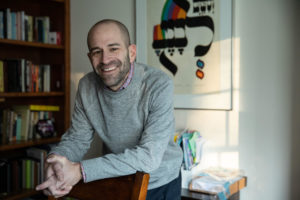
David, 45, is from the Philadelphia area. He grew up at Temple Emanuel in Cherry Hill, New Jersey, where his father, Jerome P. David, is rabbi emeritus after leading the community from 1974 to 2021.
The David son attended Camp Harlam and served in NFTY, the youth organization for Reform Jews. Through those experiences, he found himself at KI many times as a youth; he knew of both its size, with more than 1,000 member families (today it’s closer to 800), and its prestige in the Reform movement with rabbis like Sussman and his predecessor, Simeon Maslin, a noted national leader.
Out of rabbinical school, David served Temple Sinai in Roslyn Heights, New York. Then he moved on to his current home, Adath Emanu-El in Mount Laurel, New Jersey, a roughly 360- to 380-family synagogue.
But David is in the last year of his contract at Adath Emanu-El, and though he thought he might return, he was looking at openings on a Reform job board. That was when he saw that KI had an opening.
“There’s an expectation at KI that we continue to be a leading voice in the Reform movement and in the Philadelphia Jewish community,” David said. “To me, that’s really alluring.”
Witkovsky sold himself to Beth Hillel-Beth El leaders with his people skills.
During his weekend visit to the synagogue at the end of the interview process, the rabbi asked people questions, paid attention and remembered names, according to Barbara Bookman, synagogue president.
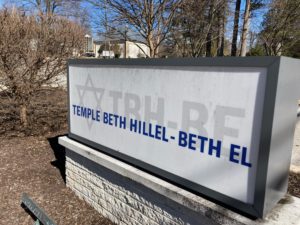
He connected with kids in the early childhood center by sitting on the floor and talking to them; he built rapport with older religious school students by using silly topics to spark conversations about Jewish values. Witkovsky told the sixth- and seventh-graders, for example, that there was a Jewish way to tie your shoes.
“He is very easy to get to know,” Bookman said. “Really natural.”
David seemed to convince KI higher-ups with his resume at Adath Emanu-El.
KI’s website announcement cited “meaningful relationships with congregants” as the first highlight from his time in Mount Laurel. But it also credited David with promoting social justice initiatives, expanding Israel engagement and revitalizing the post b’nai mitzvah program and the adult bar/bat mitzvah and confirmation programs, among other accomplishments.
The post said David “has been an inspiring leader for the past 10 years,” referring to his time at Adath Emanu-El.
Witkovsky and David are taking over spiritual leadership at established congregations with hundreds of families. Yet they face a challenge unlike any that rabbis have faced before.
Both men said adapting to the post-pandemic future was their most important task. How do you use virtual spaces without overusing them? And, on a related note, how do you still get people to actually come to synagogue?
Neither man had a clear answer, as no one really does. But they at least knew where to start.
“People are looking for a community that cares about them,” Witkovsky said. “To be here for them in good times and bad.”
“Intentionally being a rabbi that is present and caring and helping to set the tone for the broader community to be present and caring for each other,” David concluded.
[email protected]; 215-832-0740



